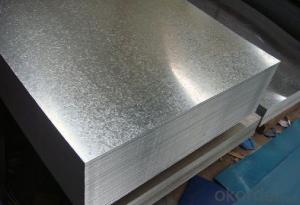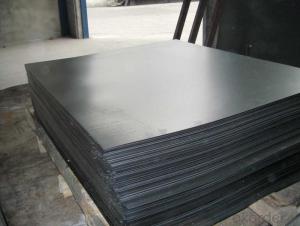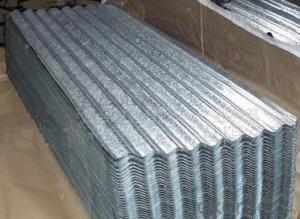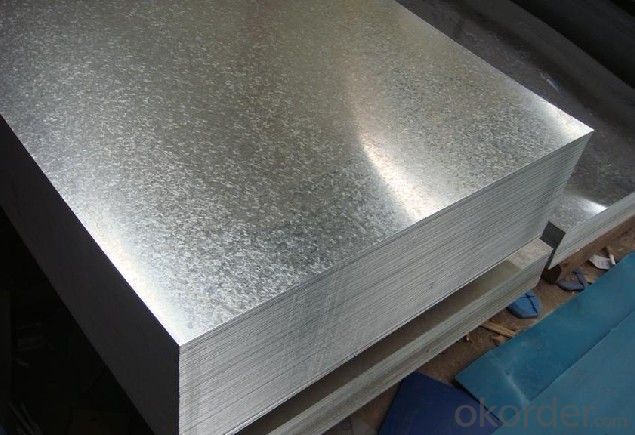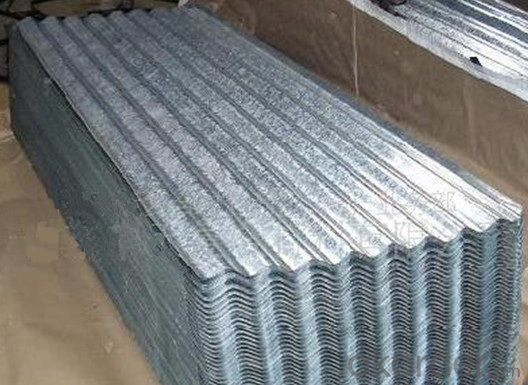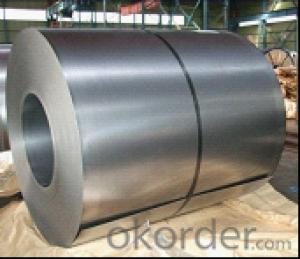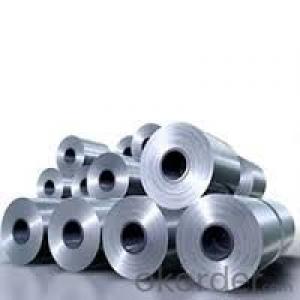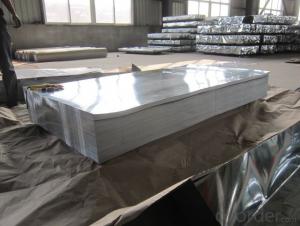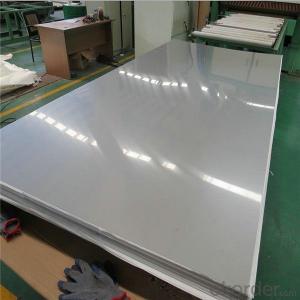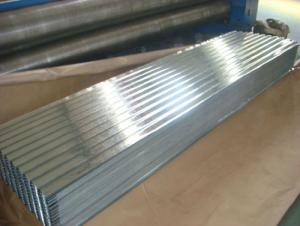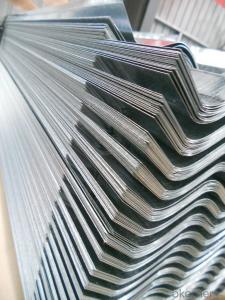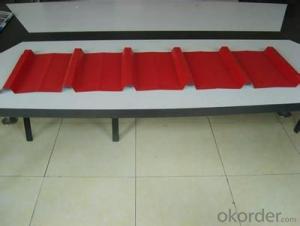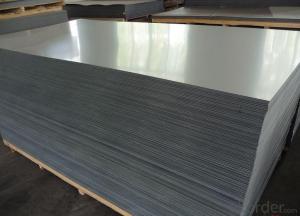Gavanized steel sheets
- Loading Port:
- China Main Port
- Payment Terms:
- TT OR LC
- Min Order Qty:
- -
- Supply Capability:
- -
OKorder Service Pledge
Quality Product, Order Online Tracking, Timely Delivery
OKorder Financial Service
Credit Rating, Credit Services, Credit Purchasing
You Might Also Like
Specifications
GI Steel Sheet
thickness:0.135-1.5mm
width:600-1250mm
material:Q195, Q235, Q345B, SGCC, DX51D
ISO
- Q: How are steel sheets protected during cutting and fabrication?
- Steel sheets are protected during cutting and fabrication through various methods to ensure their quality and prevent damage. One common way to protect steel sheets is by using a process called "galvanizing". Galvanizing involves applying a protective zinc coating to the surface of the steel sheet, which acts as a barrier against corrosion and other forms of damage. This process is particularly effective in outdoor environments where steel sheets are exposed to moisture and other harsh elements. Another method of protection during cutting and fabrication is the use of lubricants or coolants. These substances are applied to the cutting tools and the steel sheet itself to reduce friction and heat generation. By minimizing heat, lubricants and coolants help prevent the steel sheet from warping or distorting during the cutting and fabrication process. Furthermore, during the fabrication of steel sheets, they are often covered or masked with protective films or tapes. These films or tapes act as a shield against scratches, abrasions, and other forms of physical damage that may occur during handling or transportation. In addition to these methods, proper handling and storage practices are also crucial for protecting steel sheets during cutting and fabrication. Steel sheets should be stored in a controlled environment to prevent exposure to moisture, extreme temperatures, or other damaging elements. They should also be handled with care to avoid any impact or bending that could compromise their structural integrity. Overall, steel sheets are protected during cutting and fabrication through a combination of surface coatings, lubricants or coolants, protective films or tapes, and proper handling and storage practices. These measures help ensure the quality and durability of the steel sheets, allowing them to maintain their integrity throughout the fabrication process and beyond.
- Q: Can steel sheets be used for heat transfer applications?
- Yes, steel sheets can be used for heat transfer applications due to their high thermal conductivity and ability to withstand high temperatures. They are commonly used in various industries, such as HVAC systems, automotive manufacturing, and power generation, for efficient heat transfer and dissipation.
- Q: Can steel sheets be used for walkways or platforms?
- Yes, steel sheets can be used for walkways or platforms. Steel is a durable and strong material, making it suitable for supporting heavy loads and providing a safe surface for walking. It is commonly used in industrial settings, construction sites, and other applications where a sturdy and reliable platform is needed.
- Q: What is the average lead time for ordering steel sheets?
- The average lead time for ordering steel sheets can vary depending on various factors such as the supplier, quantity required, customization needs, and current market conditions. However, on average, the lead time for ordering steel sheets typically ranges from a few days to several weeks. If the steel sheets are readily available in stock with the supplier, the lead time could be as short as a few days or even less, allowing for quick fulfillment of the order. However, if the steel sheets need to be sourced from a specific mill or manufacturer, the lead time can be longer. This is especially true if the order requires custom specifications, such as specific dimensions, finishes, or grades of steel. Other factors that can affect lead time include the supplier's production capacity and workload, transportation and logistics considerations, and any potential delays caused by unforeseen circumstances such as natural disasters or labor disputes. It is crucial to communicate with the supplier or manufacturer to get accurate lead time estimates for ordering steel sheets. They will be able to provide specific information based on their production capabilities and current circumstances. Additionally, it is always advisable to plan ahead and allow for some buffer time to account for any potential delays or unforeseen challenges that may arise during the ordering process.
- Q: Are the steel sheets suitable for electrical enclosures?
- Yes, steel sheets are suitable for electrical enclosures. Steel is a highly durable and strong material that provides excellent protection for electrical components. It is resistant to impact, corrosion, and high temperatures, making it an ideal choice for enclosures that house sensitive electrical equipment. Additionally, steel sheets can be easily fabricated and customized to meet specific design requirements, ensuring a perfect fit for the electrical enclosure. Overall, steel sheets offer the necessary strength, durability, and protection needed to house electrical components effectively.
- Q: Can the steel sheets be easily drilled for fastening purposes?
- Drilling steel sheets for fastening purposes? Absolutely possible! Steel is renowned for its strength and durability, yet it remains relatively easy to work with when it comes to drilling. By employing the correct tools and techniques, you can effortlessly create holes in steel sheets to attach brackets, screws, or nails. Nevertheless, it's crucial to employ drill bits specifically designed for metal drilling. Moreover, during the drilling process, it might be necessary to utilize lubricants or cooling agents to prevent overheating and potential damage to the drill bit. Although drilling through steel sheets demands additional effort and careful handling, rest assured, it can be accomplished successfully for fastening purposes.
- Q: Can the steel sheets be used for medical equipment?
- Indeed, medical equipment can make use of steel sheets. Steel's robustness, longevity, and resistance to corrosion render it a prevalent substance in the medical sector. It permits the production of an array of medical equipment, including surgical tools, hospital beds, medical trolleys, and diagnostic apparatus. Steel sheets can be conveniently shaped and crafted into diverse forms and dimensions, thereby catering to distinct requirements of medical equipment. Moreover, steel's hygienic attributes, facilitating easy sterilization, establish it as a fitting material for medical equipment necessitating regular sanitization.
- Q: How much is a steel sheet per square meter?
- Steel plates are priced by weight. They are different from one square meter in thickness and weight. The price is different.
- Q: How do steel sheets compare to fiberglass sheets?
- Different applications require distinct characteristics from steel sheets and fiberglass sheets. Steel sheets are renowned for their strength and durability, enabling them to withstand heavy loads and resist impact and abrasion. Additionally, steel sheets provide exceptional fire resistance, making them an ideal choice for applications prioritizing fire safety. Furthermore, steel sheets require relatively low maintenance and can endure harsh weather conditions, making them a popular option for outdoor structures like roofing and siding. On the contrary, fiberglass sheets possess the advantage of being lightweight and highly resistant to corrosion. Typically composed of woven glass fibers embedded in a resin matrix, fiberglass sheets offer a high strength-to-weight ratio. Moreover, they are non-conductive, making them suitable for applications requiring electrical insulation. Notably, fiberglass sheets are also transparent to electromagnetic waves, particularly radio waves, making them widely used in industries such as telecommunications. While steel sheets excel in providing superior strength for heavy-duty applications, fiberglass sheets shine in areas where considerations of weight, corrosion resistance, and electrical insulation are crucial. Ultimately, the choice between steel sheets and fiberglass sheets hinges on the specific requirements of the application and the desired characteristics necessary to fulfill those requirements.
- Q: What are the limitations of using steel sheets?
- One limitation of using steel sheets is their susceptibility to corrosion, especially when exposed to moisture or certain chemicals. Additionally, steel sheets can be heavy and require special equipment for handling and installation. They also have limited flexibility and may crack or break under excessive stress or bending. Moreover, steel sheets may be more expensive compared to other materials, making them less cost-effective in certain applications.
Send your message to us
Gavanized steel sheets
- Loading Port:
- China Main Port
- Payment Terms:
- TT OR LC
- Min Order Qty:
- -
- Supply Capability:
- -
OKorder Service Pledge
Quality Product, Order Online Tracking, Timely Delivery
OKorder Financial Service
Credit Rating, Credit Services, Credit Purchasing
Similar products
Hot products
Hot Searches
Related keywords
